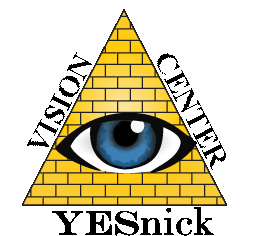
February is a time to shed light on two critical health observances: Low Vision Awareness Month and Macular Degeneration Awareness. These initiatives aim to educate individuals about vision loss, empower those affected, and promote resources for support and treatment.
Below, our Las Vegas eye care team at Yesnick Vision Center discusses what low vision is, its link to macular degeneration, how you can protect your vision, and how we can help.
What Is Low Vision?
Low vision refers to visual impairment that cannot be fully corrected with glasses, contact lenses, or surgery. It can significantly affect daily activities such as reading, recognizing faces, and navigating spaces. Common causes include diabetic retinopathy, cataracts, glaucoma, and macular degeneration.
Millions of Americans live with low vision, yet many remain unaware of the resources available to help them maintain independence. Vision rehabilitation services and specialized devices can enhance quality of life for those with visual impairments.
The Impact of Macular Degeneration
Age-related macular degeneration (AMD) is a leading cause of low vision. This progressive condition affects the macula, the part of the retina responsible for central vision. There are two types of AMD:
Dry AMD: Characterized by the thinning of the macula and gradual vision loss.
Wet AMD: Occurs when abnormal blood vessels grow under the retina, causing rapid vision changes.
Early symptoms of AMD include blurry or distorted vision and difficulty seeing fine details. Regular eye exams are essential, as early detection can slow progression and preserve vision.
Resources for Low Vision and AMD
If you or a loved one are experiencing vision loss, it's crucial to seek professional guidance. Organizations like Vision Recovery Center offer comprehensive support, including vision rehabilitation services, assistive devices, and counseling. Visit VisionRecoveryCenter.org to explore their programs and resources.
Tips for Protecting Your Vision in Las Vegas
While some risk factors for macular degeneration, such as age and genetics, are unavoidable, lifestyle changes can support overall eye health:
- Maintain a Balanced Diet: Include leafy greens, fish, and foods rich in antioxidants.
- Stop Smoking: Smoking significantly increases the risk of AMD.
- Wear Sunglasses: Protect your eyes from harmful UV rays.
- Stay Active: Regular exercise improves circulation, benefiting your eyes.
- Schedule Regular Eye Exams: Early detection is key to managing vision issues.
Join Us for Low Vision Awareness Movement
This February, take time to learn more about low vision and macular degeneration. Share your knowledge with friends and family, and encourage regular eye exams. Together, we can support individuals with vision loss and promote healthier eye care practices.


